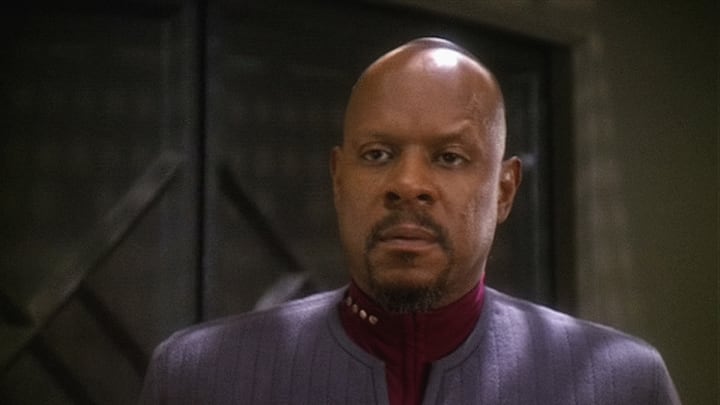Let's be very clear about something to start if you have a multi-million dollar toy line, a coveted show that's watched nationally, and constant praise from fans and critics alike, almost from the jump, of how good your show is; you don't get to call yourself an outcast.
Nor should anyone else. Star Trek: Deep Space Nine for years has been called the "outcast" of Star Trek. A laughable idea that in no way shape or form actually captures the actual reality that the show carries. Its success as a syndicated show was part of the reason that Paramount felt so emboldened to launch their United Paramount Network (UPN) and have Star Trek: Voyager be its flagship show.
If Deep Space Nine was this "outcast" or hidden little gem that no one watched, Voyager likely wouldn't have been given the slot of flagship show for a brand new television network. That's not to say that Voyager wouldn't have been made, Star Trek was hot across the board in the 1990s, of course, it would've. The confidence that it kept from higher-ups may not have been as earned, however.
Part of the reason for that is the constant success of Deep Space Nine. It was a hit from the jump, winning a host of awards for season one alone, including three Emmys. It earned something like 60+ award nominations over the course of its run on television.
It sold a ton of merchandise on top of everything. We know that Playmates action figures were huge in the 1990s, but so were licensed video games, and Deep Space Nine had four of them. They started producing games as early as 1995, nearly 18 months after the first episode. That game, subtitled "Crossroads of Time" came out for the Super Nintendo Entertainment System (SNES), one of the most popular consoles of all time.
They'd receive another three additional games on PC, peaking in reception with the second-to-last game, The Fallen.
By 1997 they had their first Hallmark ornament for the USS Defiant, For 1999, 2000, and 2001, Deep Space Nine was the primary focus of the keepsake brand, all because of its ongoing and culminating popularity. The Hallmark argument may not land with some people, but in the 1990s, Hallmark Star Trek ornaments were incredibly popular. Not just with the core fandom.
They were so in demand there were constant commercials involving Star Trek characters hawking these pieces of plastic that you put on trees. Hallmark had a lot more commercials back then as opposed to now, but even then it seemed like the Star Trek commercials were the most common to be seen.
So considering what a juggernaut Deep Space Nine was in the zeitgeist at the time, it's wild to me that this conversation still exists. It wasn't an "outcast", it was a Star Trek show designed and curated to be like the other two that came before. It was a resounding success and the only reason people like to pawn the narrative that it was somehow "an outcast" is because it was new and different.
So a few voices got really loud about the show. Yet, the show's constant success has proven time again that it wasn't the forgotten step-child that people pretend it was.
Now, Star Trek: Enterprise is a show you could make that argument for. Yet, that's a discussion for a different time.
